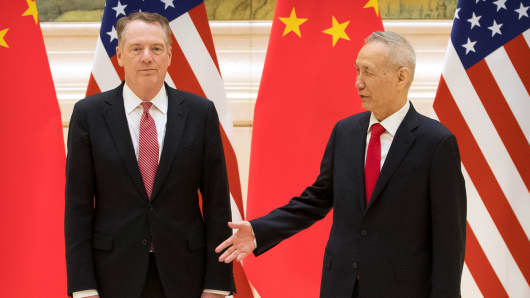U.S. President Donald Trump and China's state-run news agency Xinhua both announced "significant progress" from the last week of trade negotiations.
Encouragingly, both sides specifically mentioned the issues of technology transfer, intellectual property protection, currency, services and agriculture. Still, the U.S. and China will need to overcome significant hurdles if they're to ink a deal resolving their long-term disagreements.
Trump said in a Sunday evening Twitter post he would delay an increase in tariffs on Chinese exports to the U.S. that was originally scheduled for March 1. "Assuming both sides make additional progress, we will be planning a Summit for President Xi and myself, at Mar-a-Lago, to conclude an agreement," Trump tweeted. "A very good weekend for U.S. & China!"
Chinese stocks rallied following the news. The Shanghai composite soared 5.6 percent, sending the index back into bull market territory, or up more than 20 percent from a low touched in early January.
"In general it's perceived as very positive," Wang Huiyao, an advisor to the Chinese government and the president of Beijing-based think tank Center for China and Globalization, said in a phone interview on Monday. "If people think this is good for the country, the government can rally support (and be) more conciliatory, more cooperative."





